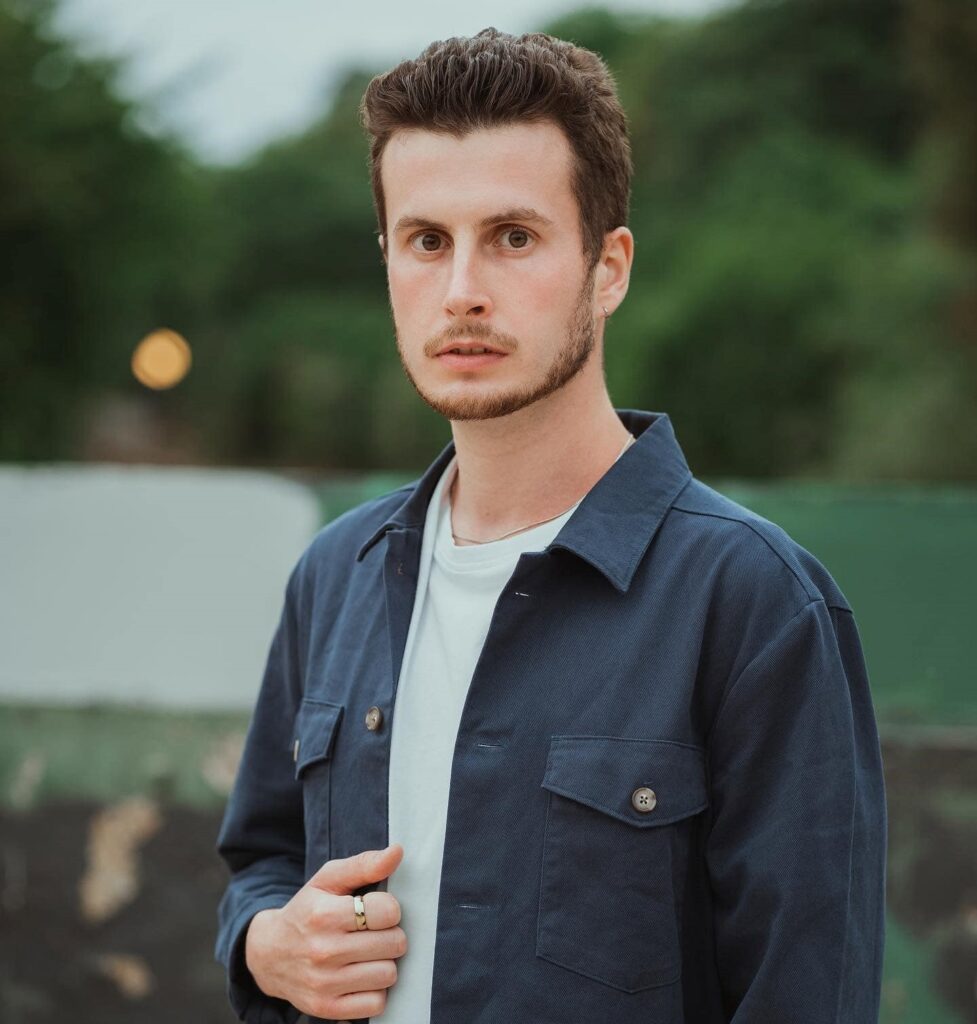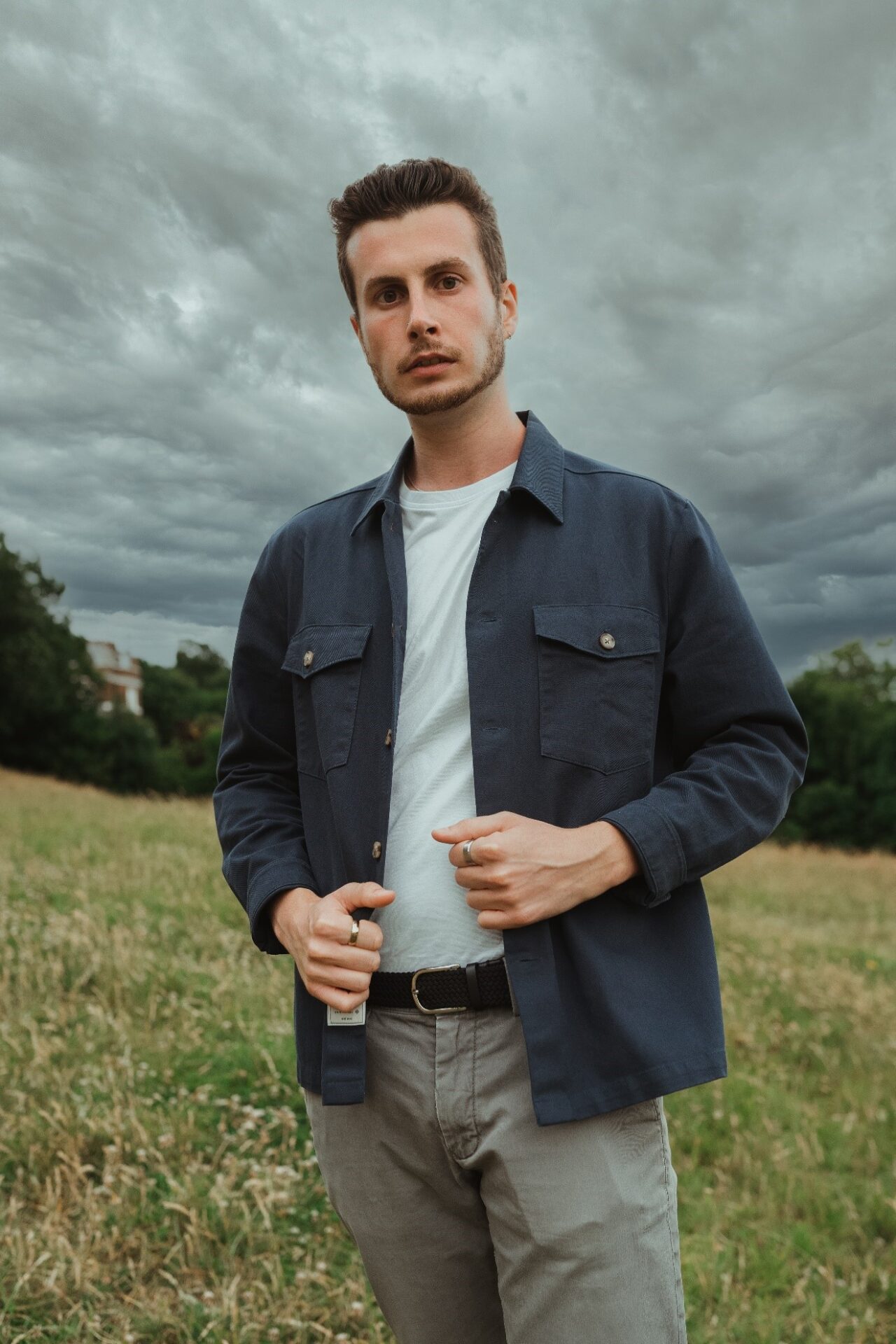After spending a few years studying and honing his craft, Robbie Mautner is now aiming to make music that is both sonically palatable and brutally honest. His upcoming album’s lead single, “Hope On The Horizon,” provides a candid look into his battle with alcoholism from the beginning to the end. In addition to reflecting his own experiences, he created the song to encourage others to be open about their struggles and ask for assistance. While some of Mautner’s earlier works were in the EDM genre, he has discovered through experimentation and working with other musicians and songwriters that his music works best in an environment that is more acoustic pop and lo-fi. He has also been able to find his creative voice and take a more anecdotal approach to the creative process by writing songs about his experiences in a conversational tone. The chorus of this song became something of a mantra for me as I was writing it during a very transitional time in my life. Every time I felt lost or confused, I kept finding myself turning to it for solace. When I finally finished the song, I wanted to make sure that it empowered listeners to feel proud of the struggles they had overcome and to not be ashamed or embarrassed to ask for help. Mautner is inspired by a variety of songwriters, including Julia Michaels, Fletcher, and Sasha Sloan, as well as left-of-center pop acts like Charli XCX, Caroline Polachek, and Rina Sawayama. His upcoming project promises to go into greater detail about stories of individual struggle and self-growth in order to create a cohesive narrative and to delve into various production and songwriting styles. Check out the single and the exclusive interview below:

1.Can you tell us a bit about where you come from and how you got started?
ROBBIE MAUTNER: I’m from London originally and have been performing from a young age in talent shows and open mic nights. I began songwriting and music production when I was around 15 and then started releasing music after that. I balanced this alongside my studies and then went on to pursue a Masters in Songwriting to give myself the time to really explore my creative process and to meet other musicians.
2. Did you have any formal training or are you self-taught?
ROBBIE MAUTNER: I played Piano and Trumpet as a teenager and then studied songwriting at Masters Level last year, but before that I was just teaching myself how to write through trial and error. Obviously being able to play piano helped me to get started, but I then learnt to write by emulating other artists and songwriters that I admired.
3. Who were your first and strongest musical influences?
ROBBIE MAUTNER: Growing up my influences were a lot of pop and rock bands such as Queen, ABBA, The Rolling Stones and The Carpenters. Then at around 10 years old I started listening to commercial pop music and became a fan of artists like Britney Spears, Kylie Minogue, P!nk and Kelly Clarkson.
4. What do you feel are the key elements in your music that should resonate with listeners, and how would you personally describe your sound?
ROBBIE MAUTNER: I’d say my honesty and storytelling is what I hope resonates the most with listeners. I’d describe my sound as melodic pop music, at times it can lean into other sub-genres but for the most part it stays within the pop realm. I generally try to write my lyrics in a conversational tone as I think it makes the songs more relatable and creates a truthful portrayal of experiences that I’ve been through. I love pairing this with digestible pop melodies which listeners can hopefully grasp from the first listen.

ROBBIE MAUTNER:
When I began songwriting I was really inspired by up and coming British singer/songwriters like Lauren Aquilina, Orla Gartland, Nina Nesbitt and Gabrielle Aplin who began their careers by posting original songs and covers online. So initially I emulated their styles of writing and paired lyrics with chords on a piano or guitar. As time went on I learnt more about the pop songwriting community and writers such as Caroline Ailin, Emily Warren and Savan Kotecha and I started to delve into the mechanics of writing pop music and creating songs that are dynamic and melodically succinct. This helped me to understand things like melodic progression and the importance of a story arc which I studied further on my Masters.
6. What’s your view on the role and function of music as political, cultural, spiritual, and/or social vehicles – and do you try and affront any of these themes in your work, or are you purely interested in music as an expression of technical artistry, personal narrative and entertainment?
ROBBIE MAUTNER:
I think music serves many different purposes and can be a great vehicle for expressing opinions on social and political issues that people are facing in the world. I try to keep my own songs personal to me and my own experiences as I think this works most effectively for me in my music.
7. Do you feel that your music is giving you back just as much fulfilment as the amount of work you are putting into it, or are you expecting something more, or different in the future?
ROBBIE MAUTNER:
Definitely, as long as my music is connecting with people and they resonate with it then that’s all I can ask for as an artist. Obviously different songs serve different purposes and some have a more commercial edge that could appeal to a wider audience, but for the most part it comes back to allowing listeners the space to acknowledge their emotions while listening to my music.
8. Could you describe your creative processes? How do usually start, and go about shaping ideas into a completed song? Do you usually start with a tune, a beat, or a narrative in your head? And do you collaborate with others in this process?
ROBBIE MAUTNER:
Personally I’m very melodically driven when it comes to songwriting, so most of the time I’ll begin by finding a melody over some chords or a track and then I’ll try to form a concept or lyrical idea to fit around it. I find it difficult to begin a song purely based on lyrics although I have written that way in the past. For me it’s much easier to create a concept once I have a melodic structure in place. Then it usually takes me a while to finish the lyrics and I’ll make edits over the space of weeks or months until I feel like the narrative structure of the song makes sense and sounds interesting. I also love collaborating with other artists and writers and have had to opportunity to work with some incredible creatives over the years. With pop music, I think co-writing is invaluable as it allows you to collaborate to find the most poignant way of expressing an emotion or idea. Having different perspectives is so important.
9. What has been the most difficult thing you’ve had to endure in your music career so far?
ROBBIE MAUTNER: I’d say musically the most challenging thing has been finding my artistic voice and figuring what I want to say with my music. It took a few years to figure this out but I once I did it made my whole creative process much clearer and gave me a better understanding of what purpose my music serves both for myself and potentially for others. This is always changing and evolving as well and I think that as a creative you never stop learning.
10. On the contrary, what would you consider a successful, proud or significant point in your music career so far?
ROBBIE MAUTNER: I’d say that I’m most proud of pushing myself to release music again. It was something that I ruminated over for a long time and had a lot of self-doubt about, so I’m really glad that I’ve now done it and that the response so far has been so positive.
KEEP IN TOUCH:
FACEBOOK | INSTAGRAM | TWITTER | SPOTIFY | TIKTOK | WEBSITE | YOUTUBE


